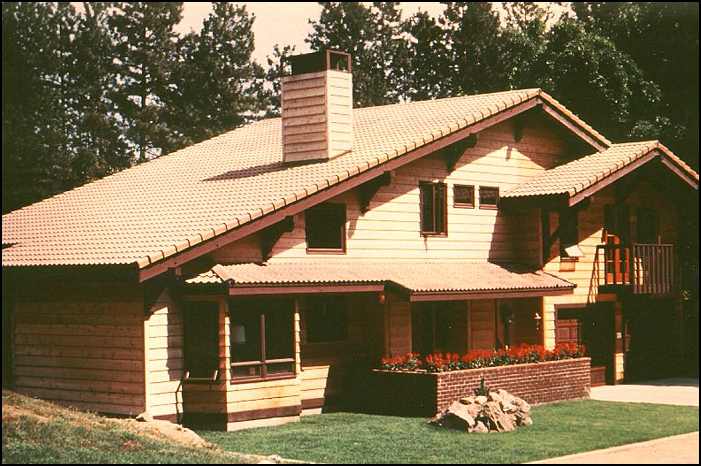An Owner Built Home & Thought experiments

Burlyn Raabe's owner built home in Leavenworth, WA — started
when he was 60 years old.
|
From COUNTRYSIDE magazine vol. 86, No. 3: What is it that really makes one owner/builder successful and creative, and another frustrated, confused and discouraged? Is it skill or commercial-grade construction experience? Sure these things help, but they mostly give you confidence in solving problems. So maybe it is more of a mental thing—a confidence that comes with thinking through and planning the process. Einstein was often working on what he called "thought experiments"—he would set up an experiment doing things like setting trains to run at near the speed of light and then see how things worked out. He did this all in his mind. Good builders don't have to be an Einstein, but most are energized and gain valuable experience by such mind experiments. They go through every step of the process several times and maybe several different ways before they actually build it in reality. This way they don't end up wasting materials or getting hurt. My dad built the house pictured above. He started when he was 60 years old and it took him 2-1/2 years. He built the forms and poured the concrete foundations (full basement), framed all walls, floors and roof, wired, plumbed, roofed and insulated the entire house. He hired the drywall out and some of the painting, if I remember right. Every morning he would wake up at 5 a.m. He would pace around the kitchen for two hours drinking coffee and building in his mind all the things he wanted to do that day. This work he did before anyone else got up. He would imagine setting up the scaffolding, what tools he would take up the ladder, how he would measure and cut in the most efficient manner... and on and on. This was a "thought experiment" for an owner-builder who had never worked as a carpenter or concrete finisher, or most of the other jobs he ended up doing. He learned to do them in his mind. He had a couple of good books (not the one below) and I had drawn up the building plans for him, but that isn't what made the difference—it was the careful daily planning sessions. My dad also enjoyed working alone, so he would only occasionally call a neighbor over to help lift something after his thought experiments found no way for him to do it alone. When it was all done he had quite a project, and he'd saved a lot of money. But that was not why he did it. Saving money will not get you very far as a motivation for building your own house. The excitment of doing thought experiments and then making them happen in the real world will! This love of planning and an appreciation of the elegant "pre-building" thought process is something I see in John Carroll's book "Working Alone" — a good read and an entry into this world of "thought experiments." — John Raabe
|